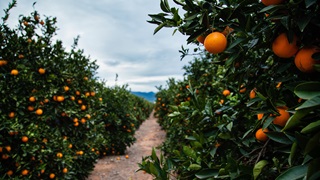
Publication
Canada: Agribusinesses tackle new challenges in employing foreign workers
Agribusinesses traditionally rely on temporary foreign workers (TFWs) to fulfill operational needs. COVID-19 poses new challenges for these businesses.


Global | Publication | October 2020
The COVID-19 pandemic has had an unprecedented effect on society and the global economy. It has created a new awakening among consumers about the importance of food security, food safety and ensuring proper commodity and food supply chains are in place which utilize safe, locally-sourced commodities and foods. In this section, we explore some of the legal and regulatory changes and challenges that are affecting food companies and agribusinesses all along the value chain from foreign worker mobility and accommodation restrictions, constrains on the supply of certain foreign-sourced products globally, trade disruptions, new protectionist and anti-trust policy developments, and important clarifications with respect to employee health and safety standards.

Publication
Agribusinesses traditionally rely on temporary foreign workers (TFWs) to fulfill operational needs. COVID-19 poses new challenges for these businesses.

Publication
As Canadians continue to self-isolate and eat more meals at home, demands on Canada’s grocery stores and food manufacturers have dramatically increased.

Publication
Following on the heels of new federal support programs for producers employing temporary foreign workers (TFWs), several provinces have announced initiatives to assist agribusinesses faced with an expected shortage in farm workers.
Publication
In For Women Scotland Ltd v The Scottish Ministers, the Supreme Court unanimously held that the definitions of “man”, “woman” and “sex” in the Equality Act 2010 refer to a person’s biological sex.
Subscribe and stay up to date with the latest legal news, information and events . . .
© Norton Rose Fulbright LLP 2025